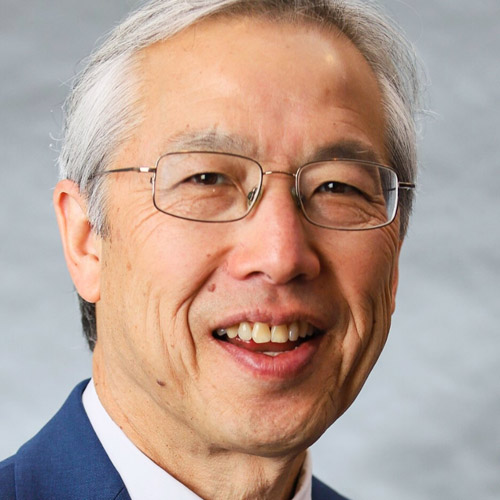Emerging from the Pandemic: The Ongoing Importance of Counselor Self-Care
Presented by: Richard Yep, CAE, FASAE

This on-demand professional training program on Emerging from the Pandemic: The Ongoing Importance of Counselor Self-Care is presented by Richard Yep, CAE, FASAE.
Our society is experiencing a pandemic and increased divisiveness, discrimination, and anxiety. As counselors, we are responsible for caring for ourselves and maintaining our self-care plan. To continue to do the excellent work required of a professional counselor, the element of self-care cannot be underestimated, as these issues impact both the counselors and those who they serve.
Numerous books, articles, blogs, and conference presentations have addressed how counselors must care for themselves. To be successful in helping clients and students, professional counselors need to address the growing dilemma of burnout in the same way that flight attendants instruct us to use oxygen masks in case of an airplane emergency: put your mask on first before helping others.
Self-care is an essential factor in maintaining equilibrium and preventing burnout. To be most effective in our work, we should leverage a self-care plan that has clear goals, strategies, and timelines. Having such a plan is necessary to stay inspired and motivated.
Counselors must take care of themselves at all stages of their careers. The early stages of counselor training are critical for developing a foundation of attentive self-care and professionalism. Later in their careers, counselors must continue caring for themselves to remain inspired and energized. For example, counselors must exercise and eat nutritiously, get enough sleep, and manage stress effectively.
This program takes a holistic approach to the various components of self-care. It also speaks to setting appropriate boundaries and finding meaning in life. Knowing how to recognize, address, and practice skills to prevent mental and physical exhaustion will give you a long, productive, and fulfilling career as a professional counselor.
Upon completion of this training, participants will be able to:
Palo Alto University, Continuing & Professional Studies (CONCEPT) is approved by, recognized by, or maintains sponsorship provider status with the following boards and agencies. We maintain responsibility for all content in our CE/CPD programs. For more information, visit here.
American Psychological Association (APA): Approved sponsor of continuing education for psychologists.
Association of Social Work Boards (ASWB): Approved continuing education provider (ACE program, Provider #1480), 11/22/2023–11/22/2026.
Canadian Psychological Association (CPA): Approved to sponsor continuing education for psychologists.
National Board for Certified Counselors (NBCC): Approved Continuing Education Provider (ACEP No. 7190).
Palo Alto University, Continuing and Professional Studies (CONCEPT) is approved by the American Psychological Association to sponsor continuing education for psychologists. Palo Alto University, Continuing and Professional Studies (CONCEPT) maintains responsibility for this program and its content. Palo Alto University, Continuing and Professional Studies (CONCEPT), is approved by the Canadian Psychological Association to offer continuing education for psychologists. Palo Alto University, Continuing and Professional Studies (CONCEPT), SW CPE is recognized by the New York State Education Department’s State Board for Social Work as an approved provider of continuing education for licensed social workers #SW-0356 and the New York State Education Department’s State Board for Mental Health Practitioners as an approved provider of continuing education for licensed mental health counselors. #MHC-0073. Palo Alto University, Continuing and Professional Studies (CONCEPT) has been approved by NBCC as an Approved Continuing Education Provider, ACEP No. 6811. Programs that do not qualify for NBCC credit are clearly identified. CONCEPT Professional Training, #1480, is approved to offer social work continuing education by the Association of Social Work Boards (ASWB) Approved Continuing Education (ACE) program. Organizations, not individual courses, are approved as ACE providers. State and provincial regulatory boards have the final authority to determine whether an individual course may be accepted for continuing education credit. CONCEPT Professional Training maintains responsibility for this course. ACE provider approval period: 11/22/23-11/22/26. Social workers completing this course receive (clinical or social work ethics) continuing education credits.